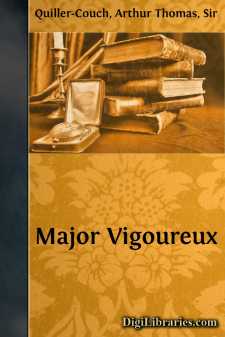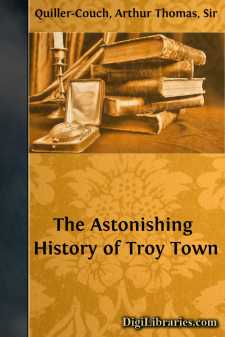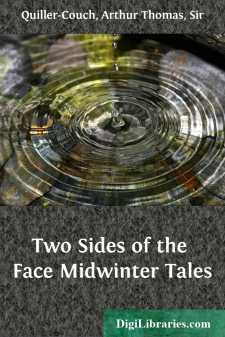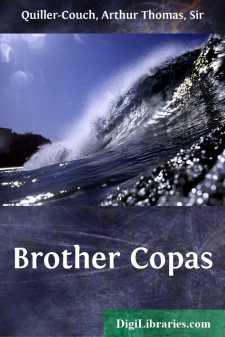Categories
- Antiques & Collectibles 13
- Architecture 36
- Art 48
- Bibles 22
- Biography & Autobiography 813
- Body, Mind & Spirit 142
- Business & Economics 28
- Children's Books 17
- Children's Fiction 14
- Computers 4
- Cooking 94
- Crafts & Hobbies 4
- Drama 346
- Education 46
- Family & Relationships 57
- Fiction 11829
- Games 19
- Gardening 17
- Health & Fitness 34
- History 1377
- House & Home 1
- Humor 147
- Juvenile Fiction 1873
- Juvenile Nonfiction 202
- Language Arts & Disciplines 88
- Law 16
- Literary Collections 686
- Literary Criticism 179
- Mathematics 13
- Medical 41
- Music 40
- Nature 179
- Non-Classifiable 1768
- Performing Arts 7
- Periodicals 1453
- Philosophy 64
- Photography 2
- Poetry 896
- Political Science 203
- Psychology 42
- Reference 154
- Religion 513
- Science 126
- Self-Help 84
- Social Science 81
- Sports & Recreation 34
- Study Aids 3
- Technology & Engineering 59
- Transportation 23
- Travel 463
- True Crime 29
Arthur Thomas Quiller-Couch
Arthur Thomas Quiller-Couch (1863-1944) was a renowned British writer and literary critic, best known for his influential work on English literature. He authored the classic "The Oxford Book of English Verse" and significantly contributed to the field of literary studies through his lectures at the University of Cambridge, where he held the position of King Edward VII Professor of English Literature. Quiller-Couch, often writing under the pen name "Q," was also a prolific novelist and short story writer, celebrated for his skillful storytelling and keen insight into human nature.
Author's Books:
Sort by:
CHAPTER I IN THE GARRISON GARDEN "Archelaus," said the Commandant, "where did you get those trousers?" Sergeant Archelaus, who, as he dug in the neglected garden, had been exposing a great quantity of back-view (for he was a long man), straightened himself up, faced about, and, grounding his long-handled spade as it were a musket, stood with palms crossed over the top of it. "Off...
more...
CHAPTER I. "Any news to-night?" asked Admiral Buzza, leading a trump. "Hush, my love," interposed his wife timidly, with a glance at the Vicar. She liked to sit at her husband's left, and laid her small cards before him as so many tributes to his greatness. "I will not hush, Emily. I repeat, is there any news to-night?" Miss Limpenny, his hostess and vis-a-vis, finding the...
more...
A Tale of Wild Justice. I. Beside a high-road in the extreme West of England stands a house which you might pass many times without suspecting it of a dark history or, indeed, any history worth mention. The country itself, which here slopes westward from the Mining District to Mount's Bay, has little beauty and—unless you happen to have studied it—little interest. It is bare, and it comes near...
more...
CHAPTER I.HOW I FIRST MET WITH CAPTAIN COFFIN.It was in the dusk of a July evening of the year 1813 (July 27, to be precise) that on my way back from the mail-coach office, Falmouth, to Mr. Stimcoe's Academy for the Sons of Gentlemen, No. 7, Delamere Terrace, I first met Captain Coffin as he came, drunk and cursing, up the Market Strand, with a rabble of children at his heels. I have reason to...
more...
PIPES IN ARCADY. I hardly can bring myself to part with this story, it has been such a private joy to me. Moreover, that I have lain awake in the night to laugh over it is no guarantee of your being passably amused. Yourselves, I dare say, have known what it is to awake in irrepressible mirth from a dream which next morning proved to be flat and unconvincing. Well, this my pet story has some of the...
more...
CHAPTER I AT THE SIGN OF THE GOOD SAMARITAN "That it may please Thee to preserve all that travel by land or by water . . . all sick persons, and young children."—THE LITANY. "I love my love with a H'aitch, because he's 'andsome—" Tilda turned over on her right side—she could do so now without pain— and lifting herself a little, eyed the occupant of the next bed....
more...
PROLOGUE. Good wine needs no bush; but this story has to begin with an apology. Years ago I promised myself to write a treatise on the lost Mayors of Cornwall—dignitaries whose pleasant fame is now night, recalled only by some neat byword or proverb current in the Delectable (or as a public speaker pronounced it the other day, the Dialectable) Duchy. Thus you may hear of "the Mayor of Falmouth,...
more...
CHAPTER I. I FIND MYSELF A FOUNDLING. My earliest recollections are of a square courtyard surrounded by high walls and paved with blue and white pebbles in geometrical patterns—circles, parallelograms, and lozenges. Two of these walls were blank, and had been coped with broken bottles; a third, similarly coped, had heavy folding doors of timber, leaden-grey in colour and studded with black...
more...
THE MASTER OF ST. HOSPITAL. 'As poor, yet making many rich; as having nothing, and yet possessing all things…' The Honourable and Reverend Eustace John Wriothesley Blanchminster, D.D., Master of St. Hospital-by-Merton, sat in the oriel of his library revising his Trinity Gaudy Sermon. He took pains with these annual sermons, having a quick and fastidious sense of literary style. "It...
more...
CHAUCER March 17, 1894. Professor Skeat's Chaucer. After twenty-five years of close toil, Professor Skeat has completed his great edition of Chaucer. It is obviously easier to be dithyrambic than critical in chronicling this event; to which indeed dithyrambs are more appropriate than criticism. For when a man writes Opus vitæ meæ at the conclusion of such a task as this, and so lays down his...
more...











